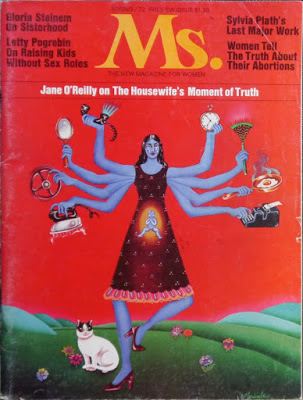Women’s unpaid labor is worth $10,900,000,000,000
 |
| Gus Wezerek – Kristen R. Ghodsee 10/03/2020 |
If American women earned minimum wage for the unpaid work they do around the house and caring for relatives, they would have made $1.5 trillion last year.
If American women earned minimum wage for the unpaid work they do around the house and caring for relatives, they would have made $1.5 trillion last year. Globally, women would have earned $10.9 trillion.
Imagine you had a bucket big enough to hold all the money made in 2018 by the 50 biggest companies in the world. The $10.9 trillion that women didn’t earn would more than fill it.
Societies rarely take stock of the value of unpaid care work unless there is a disruption in the supply.
On Oct. 24, 1975, 90 percent of Icelandic women refused to cook, clean or look after children for a day. It brought the whole nation to a standstill. Men across the country scrambled to fill in, taking their children to work and overwhelming restaurants.
Unpaid labor — what the Organization of Economic Cooperation and Development defines as time spent doing routine housework, shopping for necessary household goods, child care, tending to the elderly and other household or non-household members, and other unpaid activities related to household maintenance — remains largely invisible to economists.
It isn’t a part of G.D.P. calculations and rarely factors into other measures of economic growth. It is notoriously difficult to value because the normal market signals of supply and demand don’t work: Traditional expectations that caring for children, the elderly and the infirm should be done gratis within the family obscure the true economic value of this work. And yet what the example of Iceland shows us is that women provide a huge unacknowledged subsidy to the smooth functioning of our economies, which would grind to a halt if women stopped doing this work.
This International Women’s Day, we looked at how much women would have made last year if they earned minimum wage for their unpaid work.
The value of this shadow labor is staggering: $10.9 trillion, according to an analysis by Oxfam. It exceeds the combined revenue of the 50 largest companies on last year’s Fortune Global 500 list, including Walmart, Apple and Amazon.
We also compared the distribution of unpaid work across genders. India has the largest gap: Women there spend almost six hours a day managing the home; Indian men spend a paltry 52 minutes. The smallest divides are found in Sweden, Denmark and Norway, where social safety net programs provide care for children and older people.


